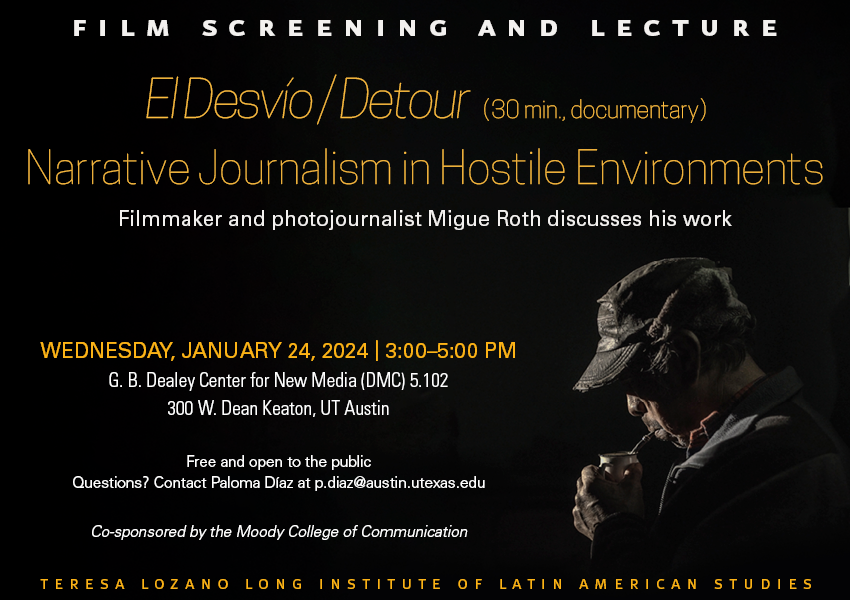by AMELIE BAQUERO LANZADURI
In the remote setting of El Desvío, a solitary man navigates the unforgiving terrain of the Patagonian Steppe. Once-familiar paths are now intersected by imposing wire fences, delineating the territories of a foreign landowner. His 34 young goats must now roam farther in search of scarce pasture. This short film by Migue Roth (Argentina, 2020) demonstrates that there are other ways of living as opposed to our huge, fast-paced society.
Floriano, the protagonist, lives by himself in a secluded area, taking care of his animals. In Floriano’s world, animals are not just companions or resources; they are his lifeline. In his remote abode, his connection to these creatures transcends ownership or dependence; it’s a bond of necessity and mutual survival. While urban individuals may view animals as disposable commodities or even distant abstractions, Floriano’s reality is starkly different. His animals are his family, his sustenance, and his reason for being. In his isolated domain, where human interaction is scarce, his animals become the focal point of his dreams, representing both his longing for connection and his reliance on them for endurance.
When disaster strikes and his sheep go missing, Floriano’s world is thrown into chaos. The anguish he experiences is not merely the loss of property but the threat to his very survival. In a frantic search fueled by desperation and determination, he scours the land, driven by the primal instinct to protect what is essential to his existence.
Through Floriano’s journey, the film explores not only the significance of animals in his life but also the contrast between his relationship with them and society’s often indifferent attitude toward animal life. In a world where animals are commodified and their worth measured in economic terms, Floriano’s story serves as a poignant reminder of the deep, intrinsic value of all living beings.
LLILAS hosted a screening and conversation with Roth in January. During his talk about the challenges of reporting in hostile settings, Roth had some advice regarding narrative journalism, sharing key points that he thought were important to produce a great story. These included opening your lens to other perspectives, paying attention to what is going on in the periphery of an issue, and not just focusing only on the “center of attention.” Another key point Roth made was to be compassionate and empathetic with the people you are interviewing. You never know how a situation is affecting the victims, so just remember that they are human with emotions and reporters should never take advantage of people’s traumas.
Born in Patagonia in 1985, Migue Roth is a videographer and photojournalist specializing in journalism amid humanitarian crises. His freelance work encompasses coverage of disasters, forced migrations, and humanitarian conflicts. Additionally, he shares his expertise as a university lecturer and is the driving force behind Angular, a platform dedicated to narrative journalism. Roth’s reporting focuses on social issues and transformations across Latin America, with forays into the Middle East. In a notable feat, he gained rare access to Rojava, an autonomous region in northeastern Syria, documenting the resilience of its artistic community following liberation from the self-proclaimed Islamic State. In addition to “El Desvío,” Roth’s directorial ventures include the acclaimed documentaries “Armonías para después de la guerra” and “Wildblumen.” He is also the author of the nonfiction book “Sin piedad.”
ABOUT THE AUTHOR
Amelie Baquero Lanzadurri is a second-year student majoring in Journalism and International Relations and Global Studies. She is a student employee of LLILAS.

